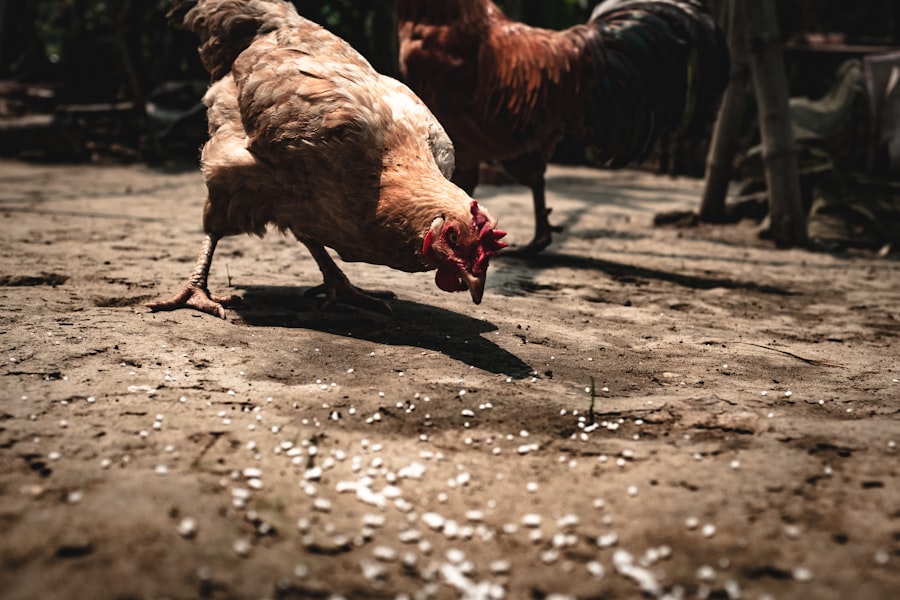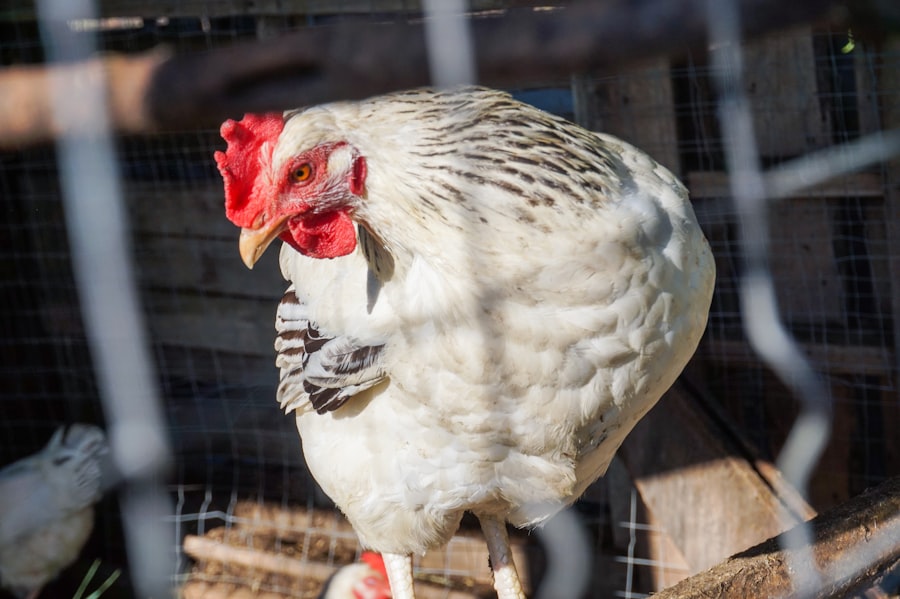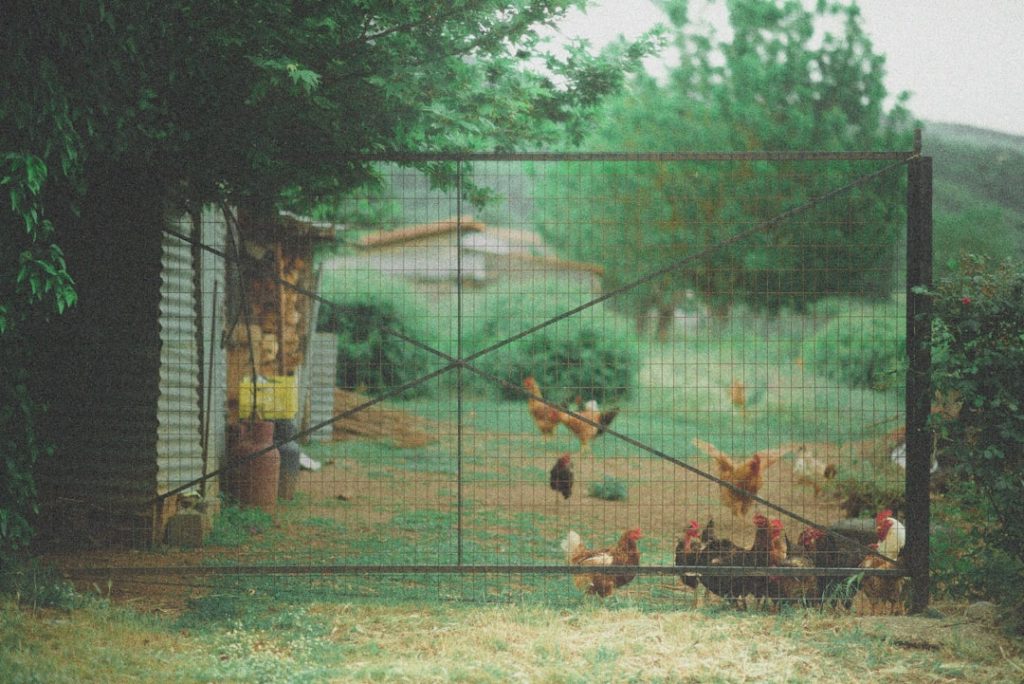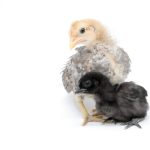Hawks are predatory birds renowned for their exceptional vision and efficient hunting skills. They are frequently drawn to areas with plentiful prey, such as open fields and agricultural lands where chickens and other small animals reside. Comprehending hawk behavior is essential for developing effective strategies to safeguard chickens from these aerial predators.
Hawks are diurnal raptors, primarily active during daylight hours. Their superior eyesight enables them to detect potential prey from considerable distances. Known for their speed and aerial agility, hawks are formidable hunters.
They typically employ a hunting technique that involves swooping down from an elevated position to capture unsuspecting prey. As opportunistic predators, hawks will target any small animal they can overpower, including chickens. To effectively protect chickens from hawks, it is crucial to understand their hunting patterns and behaviors.
By identifying when and where hawks are most likely to attack, appropriate deterrents and protective measures can be implemented to ensure the safety of the flock.
Table of Contents
- 1 Implementing Physical Barriers
- 2 Using Visual Deterrents
- 3 Creating Safe Shelter for Chickens
- 4 Employing Sound Deterrents
- 5 Practicing Vigilance
- 6 Seeking Professional Help
- 7 FAQs
- 7.1 What are some effective methods for keeping hawks away from my chickens?
- 7.2 Are there any natural deterrents for hawks?
- 7.3 What are some signs that a hawk is targeting my chickens?
- 7.4 Are there any legal methods for deterring hawks from my property?
- 7.5 What should I do if a hawk attacks my chickens?
Key Takeaways
- Hawks are opportunistic predators and are attracted to areas with easy access to prey, such as chicken coops.
- Physical barriers like netting or fencing can help prevent hawks from accessing chicken coops and protect the birds.
- Visual deterrents like scarecrows or reflective tape can help deter hawks from approaching chicken coops.
- Providing safe shelter for chickens, such as a covered run or coop, can help protect them from hawk attacks.
- Sound deterrents, such as predator calls or noise-making devices, can help scare off hawks from chicken coops.
- Regularly monitoring the area and being vigilant can help prevent hawk attacks on chickens.
- Seeking professional help from wildlife experts or pest control services can provide additional support in managing hawk behavior around chicken coops.
Implementing Physical Barriers
Implementing Physical Barriers
One of the most effective ways to safeguard your chickens from hawk attacks is by installing physical barriers around their coop and run. This can include a sturdy fence or netting that covers the entire area where the chickens roam. The barrier should be tall enough to prevent hawks from swooping down and grabbing a chicken, and strong enough to withstand the force of a hawk’s impact.
Overhead Cover: An Additional Layer of Protection
Another physical barrier that can be effective in deterring hawks is the use of overhead cover. This can be in the form of a roof or canopy that provides protection for the chickens from aerial attacks. By creating a covered area where the chickens can seek shelter, you can reduce the risk of hawk predation.
Maintenance is Key
It is essential to regularly inspect and maintain these physical barriers to ensure they remain effective in keeping hawks at bay. Any holes or weak spots in the fencing or netting should be promptly repaired to prevent any potential breaches by hawks.
Using Visual Deterrents

Visual deterrents can be an effective way to deter hawks from targeting your chickens. These deterrents work by exploiting the hawk’s natural instincts and creating an environment that is unappealing or intimidating to them. One common visual deterrent is the use of scarecrows or decoy predators, such as plastic owls or hawks.
These decoys can be strategically placed around the chicken coop and run to create the illusion of a larger, more dominant predator in the area. This can make hawks think twice about approaching the area, as they may perceive it as a potential threat to their own safety. Another visual deterrent that can be effective against hawks is the use of reflective objects, such as shiny tape or CDs, that can create flashes of light and movement.
Hawks are known to be sensitive to sudden movements and bright lights, so these reflective objects can disrupt their hunting patterns and make them hesitant to approach the area. By using visual deterrents, you can create an environment that is less inviting to hawks and reduce the likelihood of them targeting your chickens as prey.
Creating Safe Shelter for Chickens
Providing safe shelter for your chickens is essential in protecting them from hawk attacks. This can include providing a secure coop where the chickens can roost at night and seek refuge during the day. The coop should be constructed with sturdy materials and have a secure door that can be closed at night to keep the chickens safe from predators.
In addition to a secure coop, it is important to provide ample hiding spots and shelters within the chicken run where the chickens can seek cover if a hawk is spotted in the area. This can include dense shrubbery, bushes, or other structures that provide overhead cover and protection from aerial attacks. By creating safe shelter for your chickens, you can give them a place to retreat to when they sense danger and reduce their vulnerability to hawk predation.
Employing Sound Deterrents
Sound deterrents can be an effective way to deter hawks from targeting your chickens. Hawks are sensitive to loud noises and unfamiliar sounds, so employing sound deterrents can disrupt their hunting patterns and make them hesitant to approach the area. One common sound deterrent is the use of predator calls or distress calls of other birds.
These calls can create the illusion of danger in the area, causing hawks to become wary and avoid approaching the chicken coop and run. Another sound deterrent that can be effective against hawks is the use of noise-making devices, such as air horns or whistles, that can be activated when a hawk is spotted in the area. The sudden loud noise can startle the hawk and make it think twice about targeting your chickens as prey.
By employing sound deterrents, you can create an environment that is less appealing to hawks and reduce the likelihood of them preying on your chickens.
Practicing Vigilance

Monitoring the Area for Hawk Activity
Practicing vigilance is crucial in protecting your chickens from hawk attacks. This involves regularly monitoring the area for any signs of hawk activity and taking proactive measures to deter them from targeting your flock. One way to practice vigilance is by keeping an eye on the sky for any circling hawks or other birds of prey.
Responding to Hawk Sightings
If a hawk is spotted in the area, it is important to take immediate action to deter it from approaching the chicken coop and run. This swift response can make all the difference in protecting your chickens from harm.
Observing Chicken Behavior
Another way to practice vigilance is by observing the behavior of your chickens. Chickens have a natural instinct to seek cover and hide when they sense danger, so paying attention to their behavior can provide valuable cues about potential hawk activity in the area.
By practicing vigilance, you can stay one step ahead of potential hawk attacks and take proactive measures to protect your chickens from harm.
Seeking Professional Help
If you are struggling to protect your chickens from hawk attacks, it may be beneficial to seek professional help. There are experts in bird control and wildlife management who can provide valuable insights and assistance in developing effective strategies to deter hawks from targeting your flock. Professional help may involve conducting a thorough assessment of your property to identify potential vulnerabilities and developing a customized plan to mitigate the risk of hawk predation.
This may include implementing a combination of physical barriers, visual deterrents, sound deterrents, and other protective measures tailored to your specific needs. In some cases, professional help may also involve obtaining permits for non-lethal control methods, such as trapping and relocating problem hawks, under the guidance of wildlife management authorities. By seeking professional help, you can gain access to expert knowledge and resources that can help you effectively protect your chickens from hawk attacks and ensure their safety.
In conclusion, protecting your chickens from hawk attacks requires a comprehensive approach that takes into account the behavior of hawks and employs a variety of deterrents and protective measures. By understanding the hunting patterns and behaviors of hawks, implementing physical barriers, using visual deterrents, creating safe shelter for chickens, employing sound deterrents, practicing vigilance, and seeking professional help when needed, you can effectively safeguard your flock from these aerial predators. With careful planning and proactive measures, you can create an environment that is less inviting to hawks and reduce the risk of them preying on your chickens.
If you’re looking for tips on how to keep hawks from eating your chickens, you may also be interested in learning about the best practices for building a secure chicken coop. Check out this article on chicken coop construction in Muskegon for some helpful advice on creating a safe and predator-proof environment for your poultry.
FAQs
What are some effective methods for keeping hawks away from my chickens?
Some effective methods for keeping hawks away from your chickens include using netting or wire mesh to cover the chicken coop, installing scare devices such as reflective tape or predator decoys, and providing overhead cover for the chickens to hide under.
Are there any natural deterrents for hawks?
Some natural deterrents for hawks include planting tall trees or shrubs around the chicken coop to provide cover for the chickens, and allowing the chickens to free-range in areas with dense vegetation where hawks may have difficulty hunting.
What are some signs that a hawk is targeting my chickens?
Some signs that a hawk may be targeting your chickens include frequent sightings of hawks near the chicken coop, missing or injured chickens, and feathers or other signs of a struggle near the coop.
Are there any legal methods for deterring hawks from my property?
In the United States, hawks are protected under the Migratory Bird Treaty Act, which prohibits the harassment, capture, or killing of hawks without a permit. However, there are legal methods for deterring hawks from your property, such as using scare devices or providing physical barriers to protect your chickens.
What should I do if a hawk attacks my chickens?
If a hawk attacks your chickens, it is important to act quickly to protect your flock. You can try to scare the hawk away by making loud noises or using scare devices, and provide immediate medical attention to any injured chickens. It is also important to report the incident to local wildlife authorities if necessary.
Meet Walter, the feathered-friend fanatic of Florida! Nestled in the sunshine state, Walter struts through life with his feathered companions, clucking his way to happiness. With a coop that’s fancier than a five-star hotel, he’s the Don Juan of the chicken world. When he’s not teaching his hens to do the cha-cha, you’ll find him in a heated debate with his prized rooster, Sir Clucks-a-Lot. Walter’s poultry passion is no yolk; he’s the sunny-side-up guy you never knew you needed in your flock of friends!







